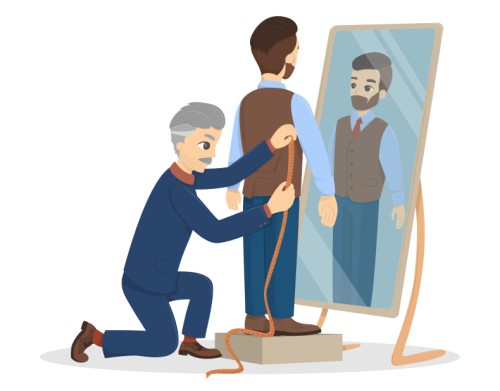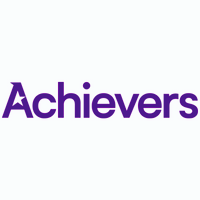Building a reward strategy that resonates across all generations
Look around your office and who do you see?
In many large organisations, the workforce is made up of people from across generations.
Gen Z now makes up 20% of the UK workforce, while Millennials comprise 35%, Gen X 20%, and Baby Boomers the rest.
Besides the experience of your coworkers missing all of your cultural references, a multigenerational workplace comes with its own challenges.
The first one is to recognise that every generation comes with its own core values, expectations and motivators.
When you’re implementing a rewards and recognition programme, customising rewards will ensure inclusivity, engagement, and satisfaction across all age demographics.
Understanding generational differences
Each generation has distinct life experiences that shape their attitudes toward work and their reward preferences.
Understanding these differences helps people leaders learn what makes their employees tick.
- Gen Z (born 1997-2012): Gen Z are digital natives. They’ve never known a world without smartphones, and they’re in the earlier stages of their careers. They tend to value flexibility, purpose, and frequent feedback.
- Millennials (born 1981-1996): The youngest Millennials are entering their 30s while the eldest are in their mid-40s, but Millennials are as socially conscious as ever. They’re also career-driven, raising families, and looking toward the future. They favour growth opportunities and work-life balance.
- Gen X (born 1965-1980): Gen X is known for its independence and pragmatism. They tend to appreciate financial stability and recognition for their accomplishments.
- Baby Boomers (born 1946-1964): Boomers are known for their loyalty and the structure of the 9-to-5 workday. They highly value respect, traditional benefits, and security. They’re your natural mentors.
Key principles for inclusive reward
Introducing rewars without taking into consideration your workforce’s preferences can backfire fast.
An effective reward programme should motivate everybody.
Organisations need inclusive rewards that follow these principles:
- Flexibility: Offer employees choices in their rewards rather than prescribing what they’re going to be. No one wants to be told how they’re going to be celebrated. Let them choose the rewards that speak to them.
- Transparency: Clearly communicate how rewards are earned and distributed. Employees are more likely to engage with a rewards programme when they know how the system works.
- Fairness: All employees should feel valued regardless of their age. Age can become a source of tension in the workplace as generations differ in communication styles and work techniques. Don’t let your rewards programme fuel any fires.
- Personalisation: Allow employees to select rewards that matter to them. You get more investment from employees when they know they’ll get something they genuinely want.
Tailoring reward by generation
Gen Z: Digital-first and purpose-driven
- Monetary rewards: Gen Z is in the early stages of their careers, often facing large amounts of student debt and without much in the way of savings. Help them find financial stability through monetary rewards.
- Career growth: If you want their loyalty, invest in Gen Z’s future. Mentorship programmes, microlearning opportunities, and skills upgrades set them up for future success.
- Wellbeing perks: Gen Z wasn’t built for 9-to-5s. They crave flexible working options, and they consider mental health to be a cornerstone of wellbeing.
- Experiential rewards: Younger generations live for the experience. Tech gadgets, travel vouchers, and social impact rewards are all likely to appeal to their live-in-the-moment attitudes.
Millennials: Balance-seekers and development-focused
- Work-life balance: Millennials experienced the transition from being in the office every day to work-from-home, and many are reluctant to go back. Consider rewards including remote work options and more flexible schedules.
- Professional development: In their early and mid-careers, many Millennials are looking for ways into leadership roles. Subsidised courses, conference tickets, and career coaching open up avenues to advancement.
- Lifestyle perks: Millennials are some of the top consumers of subscription services like Netflix and Spotify, gym memberships, and lifestyle-based apps and services. There’s always a new subscription Millennials have their eyes on that could be the perfect reward.
- Social incentives: Team outings, volunteer days, and community initiatives connect Millennial employees to the community building and social causes they care about.
Gen X: Pragmatic and financially conscious
- Financial benefits: Most Gen X employees are at a stage in their lives where they're feeling the financial crunch. Retirement is on the horizon, but the mortgage isn’t quite in the rearview mirror. Competitive salaries, robust pension plans, and mortgage assistance are effective rewards for this generation.
- Workplace autonomy: Gen X prides itself on its independence and pragmatism. They appreciate results-based recognition and time off in the form of sabbaticals.
- Health-focused rewards: While Gen X may still value youthful rebellion, they’re increasingly concerned about health issues that come with age. Private medical insurance and extended wellness leaves can be appealing rewards.
- Peer recognition: Reward programmes that encourage peer recognition feed Gen X’s desire for direct communication and collaborative approaches to work.
Baby Boomers: Experienced and stability-focused
- Traditional benefits: Baby Boomers are the traditionalists of the workplace, and while younger generations seek out new, dynamic ways of doing things, Boomers appreciate more traditional benefits. They prioritise rewards like enhanced pensions and awards for long service.
- Workplace respect: Boomers have been in the workplace for the majority of their lives. Even if they’re newer at your workplace, public recognition and leadership roles satisfy their desire for the respect they’ve earned.
- Health and wellbeing: Comprehensive healthcare plans rank highly in terms of Baby Boomers’ priorities, but extended holidays and time off are just as important for a generation looking forward to retiring.
- Mentorship opportunities: Boomers have acquired a lifetime’s worth of experience. Reverse mentoring is an opportunity for them to feel respected and build their own legacies.
Building an age-inclusive reward strategy
A multigenerational workplace demands a reward strategy that has it all. A mix-and-match approach that blends financial, experiential, and developmental rewards will appeal to all generations.
Refine and adjust rewards over time with guidance from employee feedback, and you can develop a reward strategy that always hits its target.
You don’t have to run yourself ragged personalising rewards for every employee for your programme to work. Save yourself the stress by investing in a customisable reward platform that helps you tailor reward options and evolves over time.
You can also foster a more collaborative environment across workers of different ages by creating intergenerational engagement opportunities such as mentoring and knowledge-sharing initiatives.
You have knowledgeable employees working alongside younger generations who are keen to learn. Unlock everyone’s potential through mentoring and upskilling rewards.
Reward strategies for every generation
There can be peace between the generations, even at work. All you need is a catalyst: a reward strategy that appeals across generations. By tailoring rewards to generational preferences, you foster a culture of inclusivity and engagement.
Don’t rest on your laurels, though. Another new generation is on its way. The oldest members of Gen Alpha are already getting their first part-time jobs and taking their GCSE exams. They’ll be joining the workforce in the blink of an eye.
Regularly review and adapt your approach to keep up with evolving workforce expectations.
Supplied by REBA Associate Member, Achievers
Achievers is an enterprise Recognition and Reward software with non-monetary and monetary recognition and a global reward marketplace.








